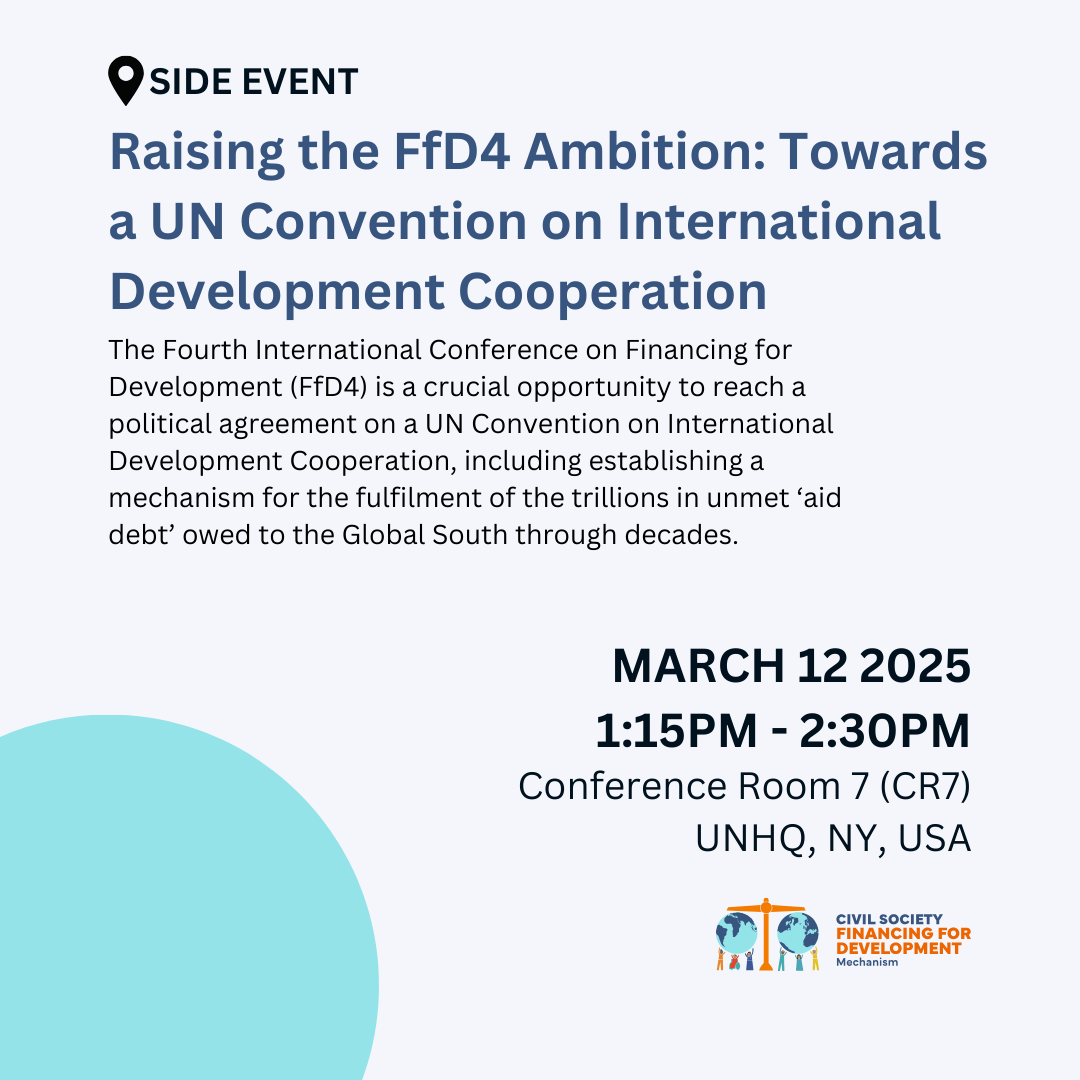Raising the FfD4 Ambition: Towards a UN Convention on International Development Cooperation
FfD4 offers an opportunity to establish a new normative framework putting International Public finance at the heart of a new International Financial Architecture.

A framework which addresses governance, norms and rule creation; democratises global decision-making spaces; and defines the purpose, impact and effectiveness of development cooperation. It must be grounded in the Right to Development. Advancing on a binding Convention on International Development Cooperation, under UN auspices, could hold Northern states accountable for their unfulfilled historical commitments on ODA quantity and quality, in a way that recognizes the trillions of unmet ODA commitments as aid debt, and usher a democratic, rights-based, equitable and just governance of development cooperation. A UN member-state process towards a Convention could ensure coherence between all forms of development cooperation and provide a normative space that brings together all relevant actors to shape policy and take decisions. The UN Development Cooperation Forum could play an important role if given the appropriate authority and mandate. This side event will discuss how FfD4 could advance towards the pathways proposed.
Moderator: Vitalice Meja, Reality of Aid Africa
Speakers:
· Jennifer Malonzo, IBON International
· Salvatore Nocerino, Oxfam
· Matthew Simmonds, European Network on Debt and Development (Eurodad)
A UN Convention on IDC must:
· Establish norm and rule setting on use and flow for development cooperation and democratise the governance of IDC. A UN member-state process towards a Convention could ensure coherence between all forms of development cooperation and provide a normative space that brings together all relevant actors to shape policy and take decisions. The UN Development Cooperation Forum could play an important role if given the appropriate authority and mandate.
· Reframe the narrative surrounding IDC from a perspective of charity to one of justice and reparations, recognizing and addressing historical injustices. IDC exists within a global economic and political framework that perpetuates inequalities between and within countries. Countries in the Global North possess both the resources to provide financial and technical support and the moral responsibility to help bridge these global inequalities.
· Establish the UN target for 0.7 GNI as a floor on aid quantity while recognising the trillions in unmet aid/ODA commitments as a debt owed to the Global South. Commitments, from the 0.7% GNI quantity2 have rarely been met. Undisbursed ODA flows owed to the Global South is estimated to be almost USD 7.2 trillion to date4 – converting these unmet commitments to an unpaid ODA debt could provide fiscal space necessary to finance poverty eradication and address inequalities.
· Ensure universalising the principles for development effectiveness. The origins of development effectiveness agenda can be traced to the Monterrey Consensus, which first recognised that National development strategies must have primacy to ensure needs-based (instead of donor-driven) allocations and alignment of development cooperation flows. The effectiveness agenda is at a crossroads and the UN has a role to play in revitalizing and universalising this agenda.
· Ringfence of ODA for poverty eradication and addressing inequality. New instruments and tools have diverted ODA from its original vision and mandate. These changes must be reversed and a universal mandate of development cooperation for addressing poverty and inequality must be restored.